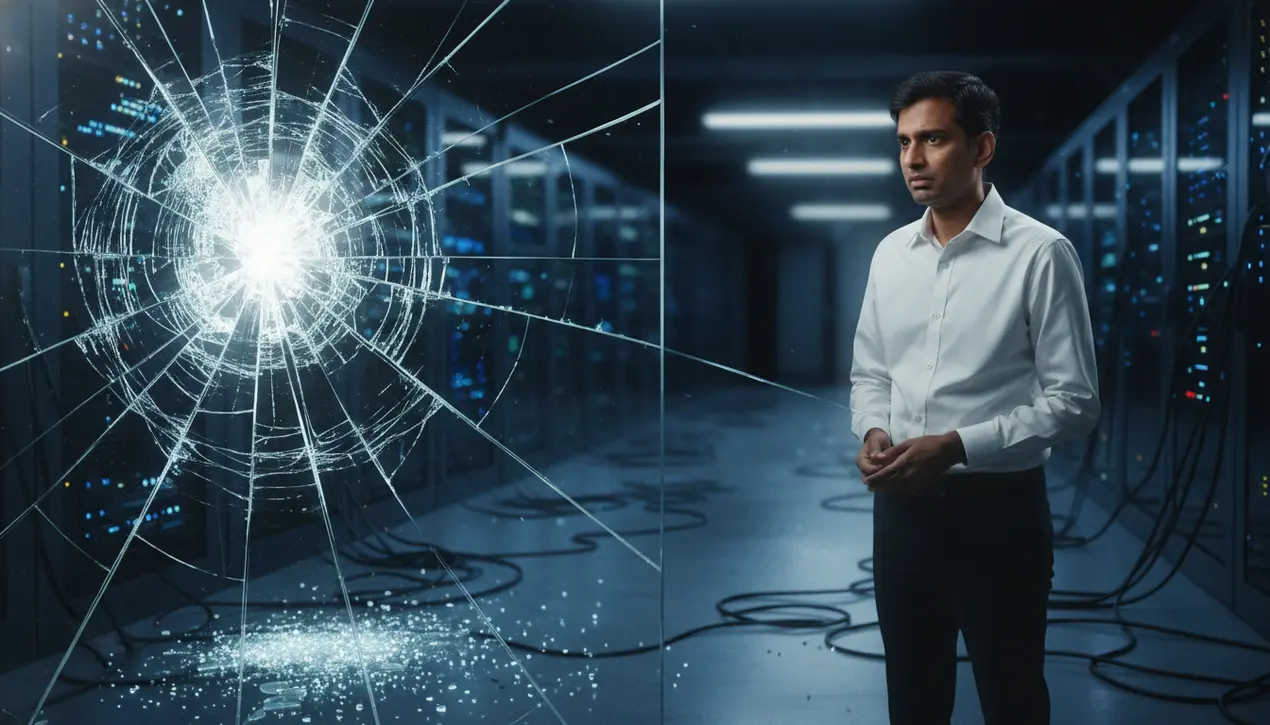
AIai safety & ethicsLong-Term Risks and AGI
Google CEO: If an AI bubble pops, no one is getting out clean.
MI
Michael Ross
2 hours ago7 min read
The warning from Google CEO Sundar Pichai that 'no one is getting out clean' if the current artificial intelligence bubble bursts is not merely corporate caution; it is a stark echo from the graveyard of technological euphoria, a direct parallel to the dot-com bust that vaporized trillions and redefined an era. Pichai, steering one of the world's most valuable companies, is in a unique position to see the gathering storm clouds, and his statement should be read not as a prediction of doom but as a sobering call for ethical and strategic grounding in an industry hurtling forward at breakneck speed.We are witnessing an investment frenzy reminiscent of the late 1990s, where venture capital floods into any startup with 'AI' in its pitch deck, and NVIDIA's market capitalization soars on the back of GPU demand, creating a ecosystem where valuation often wildly outpaces tangible utility or sustainable business models. The parallels are unnerving: then, it was Pets.com and its infamous sock puppet; today, it's a proliferation of AI startups offering marginally different large language model interfaces or image generators, all competing for a market share that has yet to be fully proven. The critical difference, and the source of both immense opportunity and profound risk, is the foundational nature of this technology.The dot-com bubble was largely about changing distribution channels and consumer interfaces—a revolution, yes, but one built on existing digital infrastructure. The AI revolution, however, aims to reconfigure the very nature of intelligence, automation, and human labor itself.Its tentacles reach into healthcare diagnostics, autonomous weapons systems, financial trading, and creative arts. Consequently, a pop wouldn't just deflate overvalued stocks; it could trigger a catastrophic loss of confidence that stalls genuine, world-changing research, stranding beneficial projects in a funding desert for a decade.This is the core of Pichai's warning: the high degree of interconnectivity. Major cloud providers like Google Cloud, Microsoft Azure, and Amazon Web Services are the bedrock of this AI boom, providing the computational horsepower.A severe contraction would ravage their growth projections, leading to massive layoffs and reduced capital expenditure on the data centers that form the industry's backbone. Chip manufacturers, from NVIDIA to AMD and TSMC, would see order books evaporate.More perilously, governments worldwide, from the United States to China and the European Union, are now deeply invested in the AI race, framing it as a matter of national security and economic supremacy. A bubble burst would not only be an economic event but a geopolitical one, potentially altering the balance of power and forcing a rapid, and likely messy, reassessment of industrial policy.The path forward, as envisioned by ethicists and forward-thinking leaders, must involve a disciplined focus on developing robust, transparent, and socially beneficial AI applications—what some call 'narrow AI' with clear utility—rather than chasing the speculative phantom of artificial general intelligence. Building in safeguards, both technical and regulatory, is not an impediment to innovation but a prerequisite for its long-term survival. Pichai’s statement is ultimately a plea for maturity, a reminder that for this transformative technology to truly flourish, it must be built on a foundation more solid than speculative hype and the fear of missing out.
#AI bubble
#market risk
#Sundar Pichai
#Google
#enterprise AI
#economic impact
#featured
Stay Informed. Act Smarter.
Get weekly highlights, major headlines, and expert insights — then put your knowledge to work in our live prediction markets.
Comments
Loading comments...
© 2025 Outpoll Service LTD. All rights reserved.